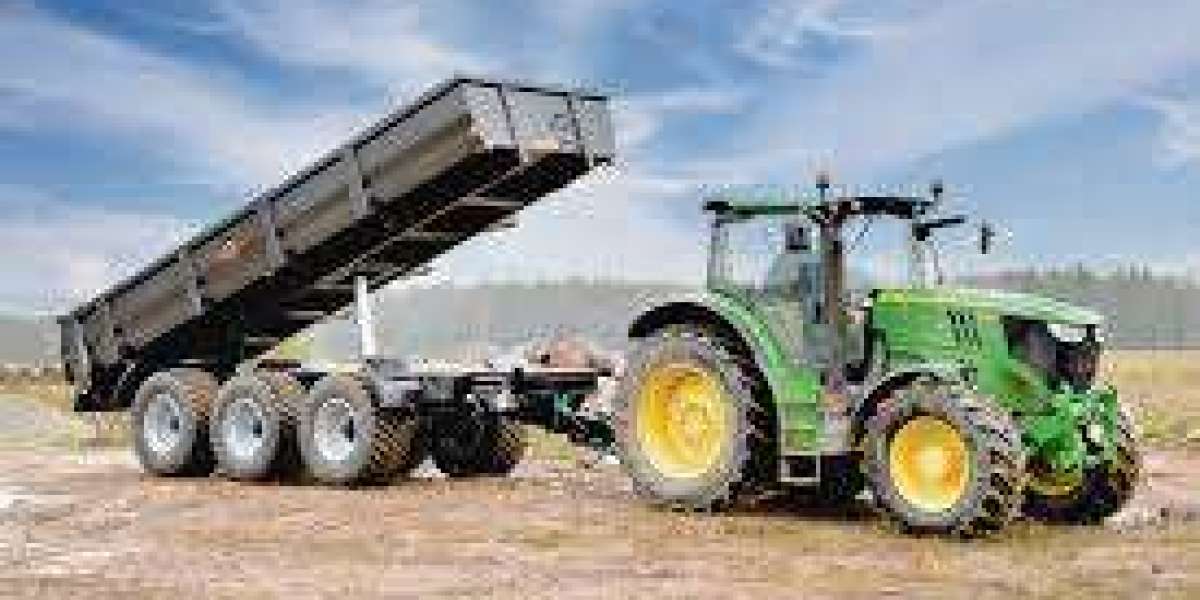Farming has always depended on strong and reliable equipment. Among the most important tools in agriculture are tractors and trailers. Together, they form a powerful combination that helps farmers complete tasks quickly, save money, and manage large amounts of work that would be impossible by hand. Whether it is plowing fields, carrying heavy loads, or transporting crops, tractors and trailers are the backbone of farm operations.
But with so many choices available in the market today, many farmers find it difficult to decide which tractors and trailers are the best for their agricultural needs. Choosing wisely can make the difference between smooth, efficient work and unnecessary problems. This article will guide you step by step in understanding tractors and trailers and how to choose the right ones for your farm.
Why Tractors and Trailers are Important in Agriculture
The main purpose of a tractor is to provide power. Tractors are designed to pull, push, or carry heavy loads while using less effort than animals or human labor. On the other hand, a trailer is used to carry goods such as seeds, crops, fertilizers, hay, or equipment. When tractors and trailers are combined, they make farm work faster and more organized.
For example, a tractor can plow a large piece of land in hours, while a trailer attached to it can carry the harvested crops from the field to the storage area. This saves time, reduces manual labor, and increases productivity. Without tractors and trailers, modern farming would take much longer and cost much more.
Factors to Consider When Choosing Tractors and Trailers
Not all farms have the same needs. A small family farm has very different requirements compared to a large commercial farm. That is why it is important to think carefully before buying tractors and trailers. Here are the main factors you should consider:
1. Farm Size and Type of Work
The size of your farm directly affects the kind of tractors and trailers you need.
Small farms: A compact tractor with a lightweight trailer is usually enough.
Medium farms: A medium-power tractor with a sturdy trailer works best.
Large farms: High-horsepower tractors and heavy-duty trailers are needed to handle bigger loads.
The type of work also matters. If you mostly grow crops, you may need a tractor that can pull plows and seeders. If your main work is transporting materials, then having a large trailer becomes more important.
2. Tractor Horsepower
Horsepower is the measure of a tractor’s strength. Tractors come in different horsepower levels:
Low horsepower (20–50 HP) is good for gardening, mowing, or light farm work.
Medium horsepower (50–100 HP) is suitable for most small and medium farms.
High horsepower (100+ HP) is used for commercial farming and heavy-duty work.
Always match the tractor’s horsepower with the size of your trailer and the work you expect it to do.
3. Trailer Capacity
Trailers also come in different sizes and load capacities. A trailer that is too small will require more trips, while one that is too large may be difficult for your tractor to pull. The best option is to choose a trailer that matches the tractor’s strength and the amount of goods you need to transport regularly.
4. Soil and Land Conditions
If your farm has soft or uneven soil, you may need a tractor with larger tires for better grip. Trailers with wider wheels are also helpful in preventing them from sinking into the ground. On the other hand, if your land is flat and dry, you can use lighter tractors and trailers.
5. Fuel Efficiency
Fuel is one of the biggest costs in farming. Choosing tractors and trailers that are fuel efficient can save you a lot of money over time. A well-maintained tractor that uses less fuel while pulling a balanced trailer will always be a smart investment.
6. Durability and Maintenance
Farming is hard work, and equipment must be strong enough to handle long hours of use. Always check the durability of tractors and trailers before buying. Look for models that are easy to maintain and have parts available in your area. This reduces downtime and keeps your work running smoothly.
Benefits of Using the Right Tractors and Trailers
When you choose tractors and trailers that fit your farm’s needs, you enjoy several benefits:
Increased Productivity: Work gets done faster and more efficiently.
Reduced Labor Costs: You need fewer workers to perform heavy tasks.
Improved Safety: Properly matched equipment reduces accidents and breakdowns.
Long-Term Savings: Fuel efficiency and reduced wear and tear save money.
Better Crop Management: Crops can be planted, harvested, and transported on time.
New vs. Used Tractors and Trailers
Many farmers face the question of whether to buy new or used equipment.
New tractors and trailers: These come with the latest technology, warranties, and lower chances of breakdowns. However, they are more expensive.
Used tractors and trailers: These are more affordable and can still perform well if properly maintained. However, they may require more frequent repairs.
The choice depends on your budget and the type of farming you do.
Tips for Buying Tractors and Trailers
Make a List of Needs: Write down what tasks you expect the tractor and trailer to handle.
Check Compatibility: Ensure the tractor can pull the trailer without strain.
Inspect Before Buying: Look for any signs of damage or poor maintenance.
Think Long Term: Do not just buy what is cheapest. Think about how long the equipment will last.
Test Run: Always test drive tractors and trailers before making a final decision.
The Future of Tractors and Trailers
Technology is changing farming rapidly. Today’s tractors and trailers are more advanced, with features like GPS guidance, smart sensors, and better fuel efficiency. These improvements help farmers save time and money while protecting the environment. By investing in the right tractors and trailers, farmers can stay ready for the future of agriculture.
Conclusion
Choosing the right tractors and trailers is one of the most important decisions a farmer can make. The right equipment makes farm work faster, safer, and more efficient. When deciding, farmers should consider the size of their farm, the type of work, horsepower, trailer capacity, fuel efficiency, and long-term durability.








